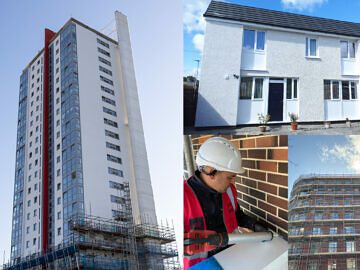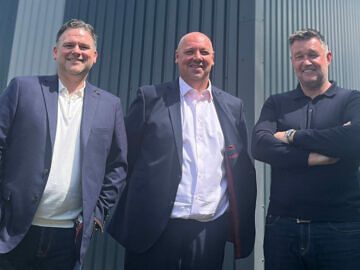In the pursuit of a sustainable and eco-friendly future, the Social Housing Decarbonisation Fund has emerged as a crucial initiative. As building contractors, government agencies, and various stakeholders converge to address the challenges of decarbonising social housing, collaboration stands out as the cornerstone of success.
The Power of Collaboration
Decarbonising social housing requires a concerted effort, one that transcends individual capabilities. Building contractors play a pivotal role in this transformation, bringing their expertise to the table. However, the scale and complexity of decarbonisation demand collaboration with government agencies and other stakeholders.
By pooling resources, knowledge, and skills, these partnerships create a synergy that accelerates progress, which is vital due to the time it takes from project identification to when work starts on site. This process can take up to six months and, with deadlines applied to Social Housing Decarbonisation Fund spending, time really is of the essence for those that have been awarded monies.
Therefore, the power of collaboration helps deadlines be met efficiently and effectively.
Learn more about timeframes by clicking here,
Government Agencies as Catalysts
Government agencies serve as catalysts for change, providing the regulatory framework and financial support necessary for large-scale decarbonisation initiatives. Collaborating with these agencies allows building contractors to navigate regulatory landscapes, access funding, and align their efforts with broader sustainability goals. Together, they form a powerful alliance driving the transformation of social housing into energy-efficient, low-carbon spaces.
Stakeholder Involvement
The success of the Social Housing Decarbonisation Fund relies on the active participation of various stakeholders. Local communities, environmental organisations, and technology providers all bring unique perspectives and capabilities to the table. Through collaboration with these stakeholders, here at Hamilton we can harness innovative solutions and ensure that decarbonisation efforts are holistic, inclusive, and socially responsible.
Sharing Knowledge and Best Practices
Collaboration fosters an environment where knowledge and best practices flow freely. We can learn from government agencies about the latest policies and standards, ensuring that their projects align with regulatory requirements. Simultaneously, contractors can share their on-the-ground experiences, providing valuable insights that inform more effective policymaking and project implementation.
The Road Ahead
As building contractors, government agencies, and stakeholders continue to collaborate, the journey towards social housing decarbonisation becomes more feasible and impactful. This collaborative approach not only accelerates the pace of change but also ensures that the benefits are distributed equitably, creating sustainable and resilient communities for the future. In the realm of social housing decarbonisation, collaboration is not merely a strategy; it is the key to success.
Building contractors, government agencies, and stakeholders must join forces, combining their strengths to create a sustainable and resilient future for all. The Social Housing Decarbonisation Fund is not just a financial incentive; it is an invitation to collaborate, innovate, and build a better world together.



